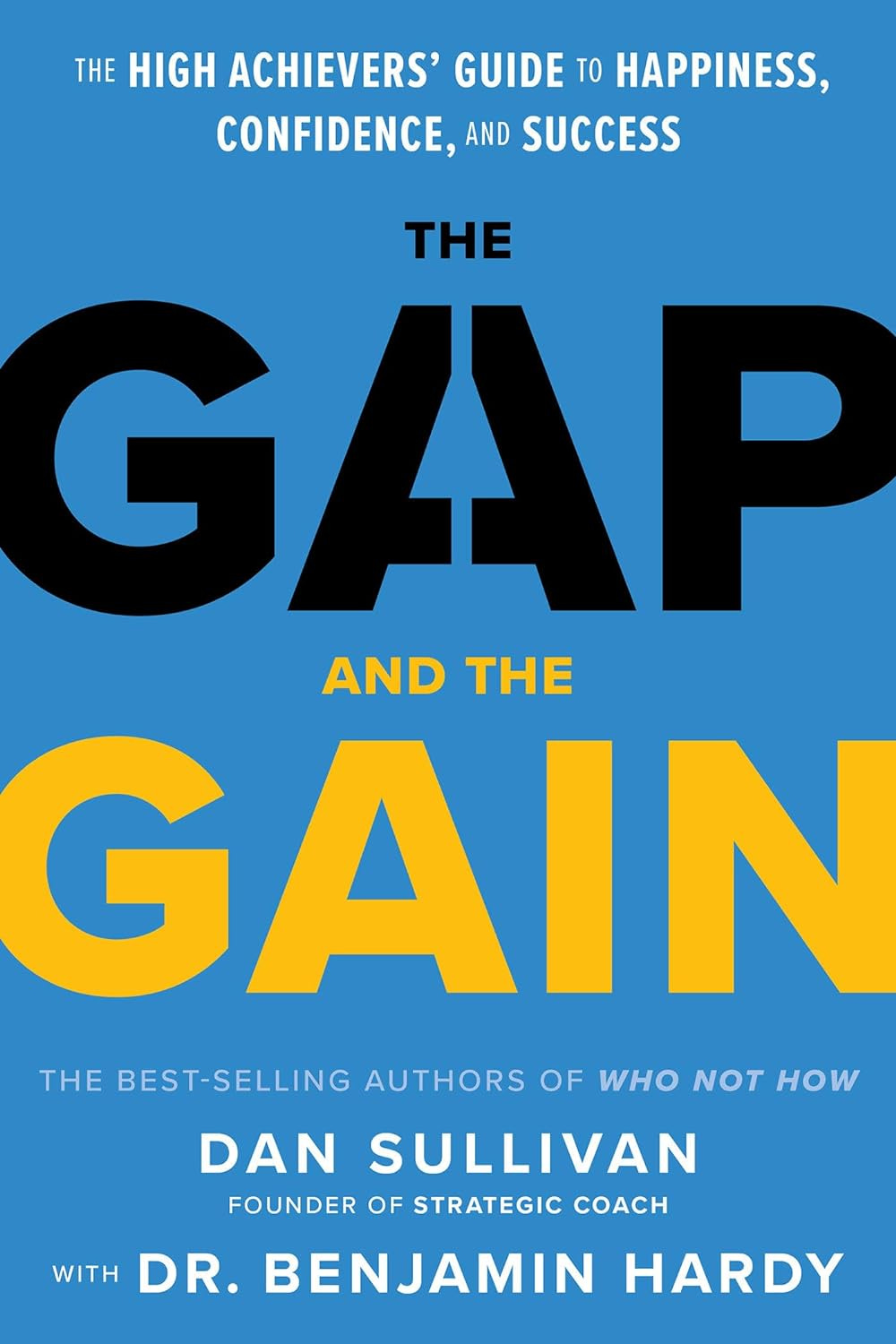Quick note: I've had a recent hand injury, slowing down my typing. Expect shorter-than-usual posts for a bit.
The Gap and the Gain by Dan Sullivan and Benjamin Hardy has a simple premise. There are 2 ways of thinking:
The Gap: focusing on what’s missing or yet to be achieved; forward looking. An insatiable monster that always wants more!
The Gain: focusing on what we’ve already accomplished; backward looking. Reflective and gratitude driven
The Gap says, “I’ll be happy when…” The Gain says, “I’m happy now.”
The authors argue that we spend too much of our lives trapped in the Gap, and not nearly enough appreciating the Gain. Shifting this mindset—appreciating what we have and how far we've already come—is happiness-maximizing.
What I appreciated about the book
This philosophy isn't shockingly new, but it's framed in a helpful, memorable way that resonated with me. Here’s an example: with young kids at home, our house can feel endlessly messy. When stepping on a stray Lego (a sensation many parents know—barely preferable to crunching a Cheerio underfoot), my default reaction is stress about clutter and disorder (Gap). But the Gain mindset reminds me to be grateful: messy houses mean healthy. energetic kids and full lives.
Why The Gap is So Hard to Escape
But this is hard: the the “gap” is ingrained in our lives. Consider:
Performance reviews: Often, we barely absorb positive feedback because we're bracing ourselves for the negative comments that follow.
Motivation: Many high performers motivate themselves by focusing on the Gap and what they haven’t achieved
Social media: Platforms consistently transform other people's gains (what they have) into our gaps (what we're missing).
Stock market investing: When a public company reports quarterly results, investors care less about past performance and more about promises or expectations for the next quarter. Finance itself inherently emphasizes what's next—when buying a stock, you're essentially buying future cash flows.
Ways to (sometimes) shift from Gap to Gain
Just naming ‘Gap’ or ‘Gain’ when experiencing them can be powerful awareness tools.
Proactive positive reinforcement: Managers can intentionally give standalone positive feedback outside formal reviews—moments when employees typically anticipate criticism.
Reframe motivation: Living in the Gain doesn’t have to mean resting on our laurels. In the Gain, we feel like we’re “playing with house money” and playing the game because it’s fun as opposed to wanting to prove ourselves
Reduce "unhappiness machines": We can consciously spend less time on platforms (social media, anonymous job boards, etc.) specifically designed to highlight what's missing in our lives.




